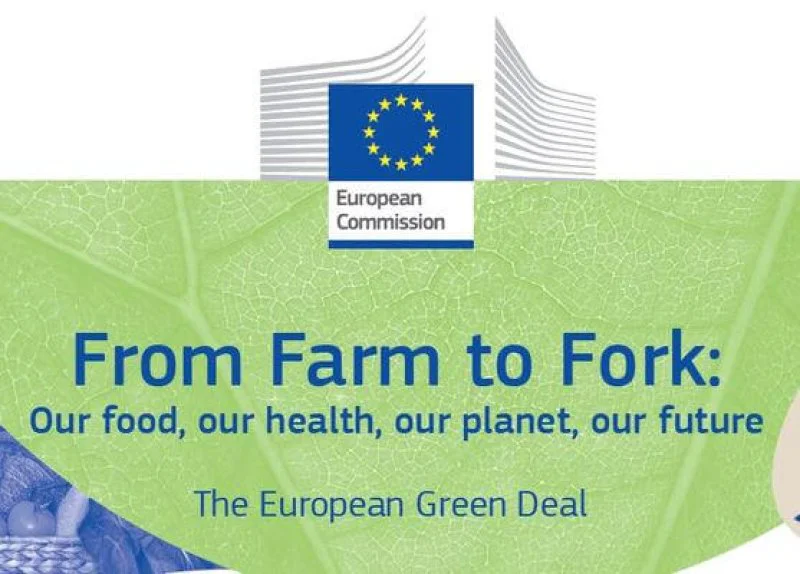Is Europe’s Farm 2 Fork plan to expand organic farming really all that good for the environment?
Is Europe’s Farm 2 Fork plan to expand organic farming really all that good for the environment?


[The European Union’s “Farm to Fork” policy] seeks to reduce the use of pesticides and fertilizers by 50% by 2050. These policies, designed …. mainly by members of the green party, do not take into account the reality of …. many producers. Such is the case of grain producers in Bulgaria.
“At the moment, there is simply no alternative to chemicals. Procedures for the approval of biological alternatives will take years and it is debatable whether they will be as effective against diseases and pests, “said Kostadin Kostadinov, president of the National Association of Cereal Producers, in a report from the middle of last year.
The main conclusion of this report is sure to cause much disagreement with lovers of productive romanticism: “Organic agriculture, which currently represents only 1% of the world’s agricultural land, has a lower yield on average …. The widespread expansion of organic agriculture would cause additional loss of natural habitats and [could lead to] increases in producer prices, making food less affordable for poor consumers in developing countries.”
[I]it is necessary to invest in technologies, such as improved varieties of seeds, fertilizers and agricultural practices that allow the producer to improve their yield, without having to expand productive lands.
[su_panel color=”#3A3A3A” border=”1px solid #3A3A3A” radius=”2″ text_align=”left”]Editor’s note: This article was originally published in Spanish and has been translated and edited for clarity.[/su_panel]
Read the original post

 | Videos | More... |

Video: Nuclear energy will destroy us? Global warming is an existential threat? Chemicals are massacring bees? Donate to the Green Industrial Complex!
 | Bees & Pollinators | More... |

GLP podcast: Science journalism is a mess. Here’s how to fix it

Mosquito massacre: Can we safely tackle malaria with a CRISPR gene drive?

Are we facing an ‘Insect Apocalypse’ caused by ‘intensive, industrial’ farming and agricultural chemicals? The media say yes; Science says ‘no’
 | Infographics | More... |

Infographic: Global regulatory and health research agencies on whether glyphosate causes cancer
 | GMO FAQs | More... |

Why is there controversy over GMO foods but not GMO drugs?

How are GMOs labeled around the world?

How does genetic engineering differ from conventional breeding?
 | GLP Profiles | More... |

Alex Jones: Right-wing conspiracy theorist stokes fear of GMOs, pesticides to sell ‘health supplements’




 Trust issues: What happens when therapists use ChatGPT?
Trust issues: What happens when therapists use ChatGPT? Fighting deforestation with CO2: Biotechnology breakthrough creates sustainable palm oil alternative for cosmetics
Fighting deforestation with CO2: Biotechnology breakthrough creates sustainable palm oil alternative for cosmetics California, Washington, Oregon forge immunization alliance to safeguard vaccine access against federal undermining
California, Washington, Oregon forge immunization alliance to safeguard vaccine access against federal undermining Viewpoint — Fact checking MAHA mythmakers: How wellness influencers and RFK, Jr. undermine American science and health
Viewpoint — Fact checking MAHA mythmakers: How wellness influencers and RFK, Jr. undermine American science and health 30-year-old tomato line shows genetic resistance to devastating virus
30-year-old tomato line shows genetic resistance to devastating virus Viewpoint: Video — Big Solar is gobbling up productive agricultural land and hurting farmers yet providing little energy or sustainabilty gains
Viewpoint: Video — Big Solar is gobbling up productive agricultural land and hurting farmers yet providing little energy or sustainabilty gains The free-range chicken dilemma: Better for birds, but with substantial costs
The free-range chicken dilemma: Better for birds, but with substantial costs ‘You have to treat the brain first’: Rethinking chronic pain with Sanjay Gupta
‘You have to treat the brain first’: Rethinking chronic pain with Sanjay Gupta
